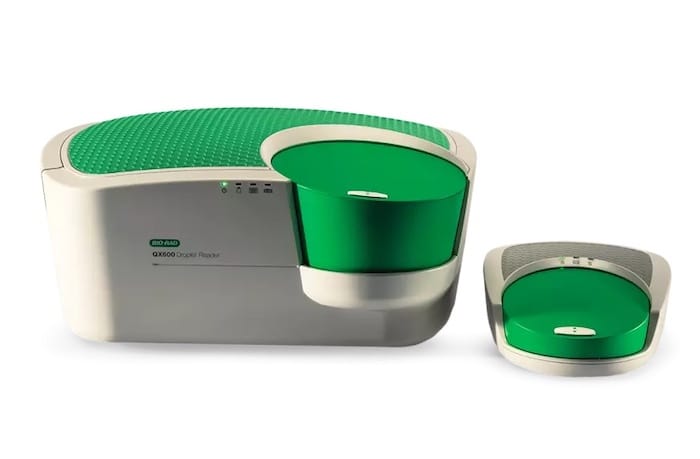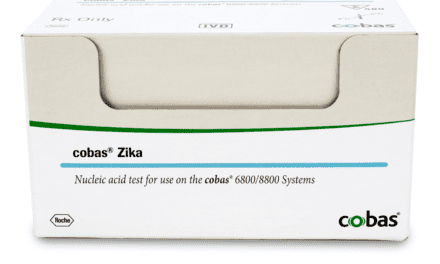Summary: Bio-Rad Laboratories and Oncocyte are collaborating to develop and market transplant monitoring products using Bio-Rad’s Droplet Digital PCR (ddPCR) instruments and reagents.
Key Takeaways:
- Bio-Rad’s ddPCR technology enables the sensitive detection of donor-derived cell-free DNA in the bloodstream of transplant recipients, serving as a valuable biomarker for organ health. This approach offers a noninvasive method for monitoring both recent and non-recent transplants, with demonstrated superiority over conventional methods in detecting acute rejection in liver transplant patients.
- The collaboration between Bio-Rad and Oncocyte integrates the latter’s transplant monitoring assays with Bio-Rad’s QX600 ddPCR System, providing a highly sensitive and decentralized alternative to centralized next-generation sequencing test providers.
- Bio-Rad has committed to participate in a private placement of Oncocyte’s equity and has secured exclusive commercial rights in certain markets to commercialize Oncocyte’s assay for transplant monitoring research
Bio-Rad Laboratories announced a collaboration agreement with Oncocyte Corp., a precision diagnostics company, to develop and commercialize transplant monitoring products using Bio-Rad’s Droplet Digital PCR (ddPCR) instruments and reagents.
Harnessing Bio-Rads ddPCR System
Under the terms of the agreement, Bio-Rad has committed to participate in a private placement of Oncocyte’s equity and has secured exclusive commercial rights in certain markets to commercialize Oncocyte’s assay for transplant monitoring research using Bio-Rad’s QX600 ddPCR System.
Utility of Droplet Digital PCR for Transplant Monitoring
Transplanted organs release cell-free DNA into the bloodstream of the recipient. This donor-derived cell-free DNA (dd-cfDNA(1)) is a sensitive biomarker for organ health that requires only a simple blood draw. The novel approach developed by the team at Oncocyte allows the assay to be applied to clinical research of both recent and non-recent transplants. The utility of the ddPCR-based approach has been well demonstrated, including in a prospective, observational, multicenter cohort trial published in 2017, which showed earlier and more sensitive discrimination of liver transplant patients with acute rejection, compared to conventional liver functional test methods(2).
The Bio-Rad and Oncocyte Collaboration
Oncocyte’s transplant monitoring assays and the Bio-Rad QX600 ddPCR System provide a highly sensitive and decentralized solution that could provide a more attractive alternative for laboratories that currently rely on centralized next-generation sequencing (NGS) test providers.
Further reading: Bio-Rad Announces Collaboration to Advance Personalized Monitoring of Solid Tumor Cancers
“This collaboration advances Bio-Rad’s strategy to establish Droplet Digital PCR as a foundational technology by providing researchers and laboratories with high-value assays across a variety of life science applications,” says Simon May, EVP and president of Life Sciences at Bio-Rad Laboratories. “We believe that Oncocyte’s transplant monitoring assays and the Bio-Rad QX600 ddPCR System solution for the noninvasive measurement and quantification of key biomarkers used in solid tissue transplant monitoring research has the potential to advance science and save lives.”
Featured image: Bio-Rad’s QX600 Droplet Digital PCR System. Photo: Bio-Rad
References:
- Donor-derived cell-free DNA (dd-cfDNA) is also known as graft-derived cell-free DNA (GcfDNA)
- Schütz E et al. (2017). Graft-derived cell-free DNA, a noninvasive early rejection and graft damage marker in liver transplantation: A prospective, observational, multicenter cohort study. PLoS Med 14, e1002286.





